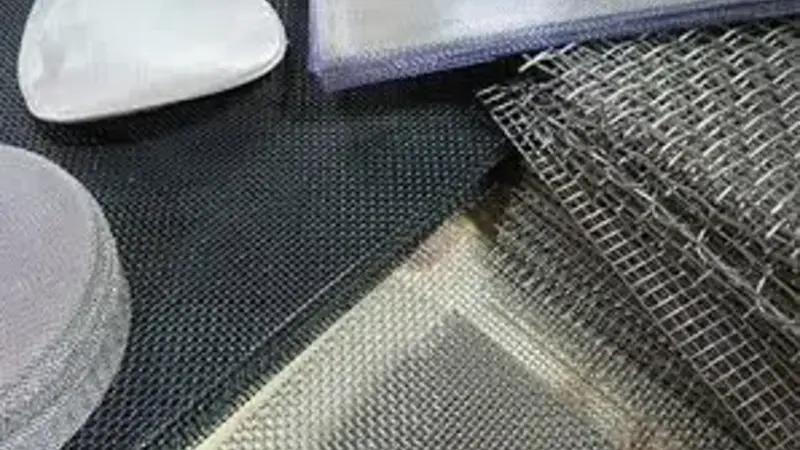Universal Wire Cloth (UWC) is a critical component in a wide array of industries, providing essential functionality in filtration, separation, and screening. This versatile material is crafted from interwoven wire, typically made of stainless steel, galvanized steel, aluminum, or brass, and is used to create meshes with varying patterns and opening sizes. The unique properties of wire cloth make it indispensable across multiple sectors, including manufacturing, chemical processing, construction, and automotive industries. This article explores the characteristics, applications, and advantages of Universal Wire Cloth, shedding light on its significance in modern industrial practices.
Characteristics of Universal Wire Cloth
Universal Wire Cloth is primarily recognized for its durability, versatility, and adaptability. The wire cloth is manufactured in different patterns such as plain weave, twill weave, and Dutch weave, which influence the mesh’s strength, flexibility, and filtering efficiency. These weave patterns are tailored to the specific needs of various industries, allowing for precise control over particle size filtration and screening.
- Material Composition: Universal Wire Cloth is typically made from high-quality metals like stainless steel due to its corrosion resistance, strength, and longevity. Other metals, such as galvanized steel, aluminum, and brass, may also be used based on the application and environmental conditions.
- Mesh Size: The mesh size of wire cloth, which refers to the number of openings per inch, can vary greatly depending on the intended use. Fine meshes with higher counts are used for detailed filtration, while coarser meshes serve purposes like screening and sieving larger particles.
- Flexibility: Depending on the material and weave pattern, Universal Wire Cloth can range from extremely flexible to rigid, allowing it to conform to various shapes and applications while maintaining structural integrity.
Applications of Universal Wire Cloth
The widespread use of Universal Wire Cloth stems from its adaptability and the diverse range of industries it serves. Here are some of the primary applications:
- Filtration and Separation: One of the most common uses of wire cloth is in filtration systems. It is employed to filter out contaminants, particulates, and debris in industries such as oil and gas, pharmaceuticals, and food processing. Wire cloth is also critical in water treatment facilities, where it separates solids from liquids in processes like sediment filtration and wastewater management.
- Screening and Sieving: In industries like mining, agriculture, and construction, Universal Wire Cloth is used to screen materials, separate sizes, and ensure uniformity in products. It can withstand harsh environments, making it ideal for tasks like rock crushing, soil sieving, and grain sorting.
- Architectural and Design Applications: Beyond industrial uses, wire cloth is increasingly found in architectural and design settings. Its durability and aesthetic appeal have led to its inclusion in modern building facades, railings, and partitions. The open structure of wire cloth allows light and air to pass through while providing structural support, making it a popular choice for both decorative and functional purposes in construction projects.
- Automotive and Aerospace: In automotive and aerospace sectors, Universal Wire Cloth plays a crucial role in filtration systems, protecting engines from debris and contaminants. It is also used in fuel filtration and air intake systems to ensure smooth operation and prolong the lifespan of machinery and vehicles.
- Safety and Security: Wire cloth is widely used for protective purposes in industries like manufacturing and energy. It can act as a barrier, preventing debris or harmful particles from entering sensitive areas. Additionally, wire cloth is often used to create cages, covers, and shields that offer both visibility and security in hazardous environments.
Advantages of Universal Wire Cloth
Universal Wire Cloth offers numerous benefits that make it a preferred choice across industries. These advantages include:
- Durability: Due to its metal composition, wire cloth can withstand high levels of wear and tear, making it suitable for heavy-duty applications. Stainless steel wire cloth, in particular, is highly resistant to corrosion, ensuring longevity in harsh environments like chemical plants and marine settings.
- Customizability: One of the key strengths of Universal Wire Cloth is its customizability. Manufacturers can tailor the weave pattern, mesh size, and material to meet specific industrial requirements, ensuring optimal performance in different applications.
- Heat and Chemical Resistance: Wire cloth is able to tolerate extreme temperatures and chemical exposure, making it ideal for use in demanding environments such as refineries and chemical processing plants.
- Cost-Effectiveness: Universal Wire Cloth is a cost-effective solution for filtration, screening, and separation. Its longevity and minimal maintenance requirements reduce operational costs, offering long-term savings to businesses.
Industry Significance
The importance of Universal Wire Cloth cannot be overstated in industries where filtration, separation, and protection are essential. Its ability to improve the efficiency of operations, reduce downtime, and protect valuable machinery from damage makes it a cornerstone of many industrial processes. Moreover, as industries continue to grow and evolve, will remain a critical component in ensuring the smooth operation of vital systems and technologies. Contact us for more details visit our site.
In conclusion, Universal Wire Cloth’s versatility, durability, and adaptability make it an indispensable material in a wide range of industries. From filtration and separation to architectural design and safety applications, wire cloth plays a significant role in enhancing productivity, ensuring safety, and delivering cost-effective solutions.



